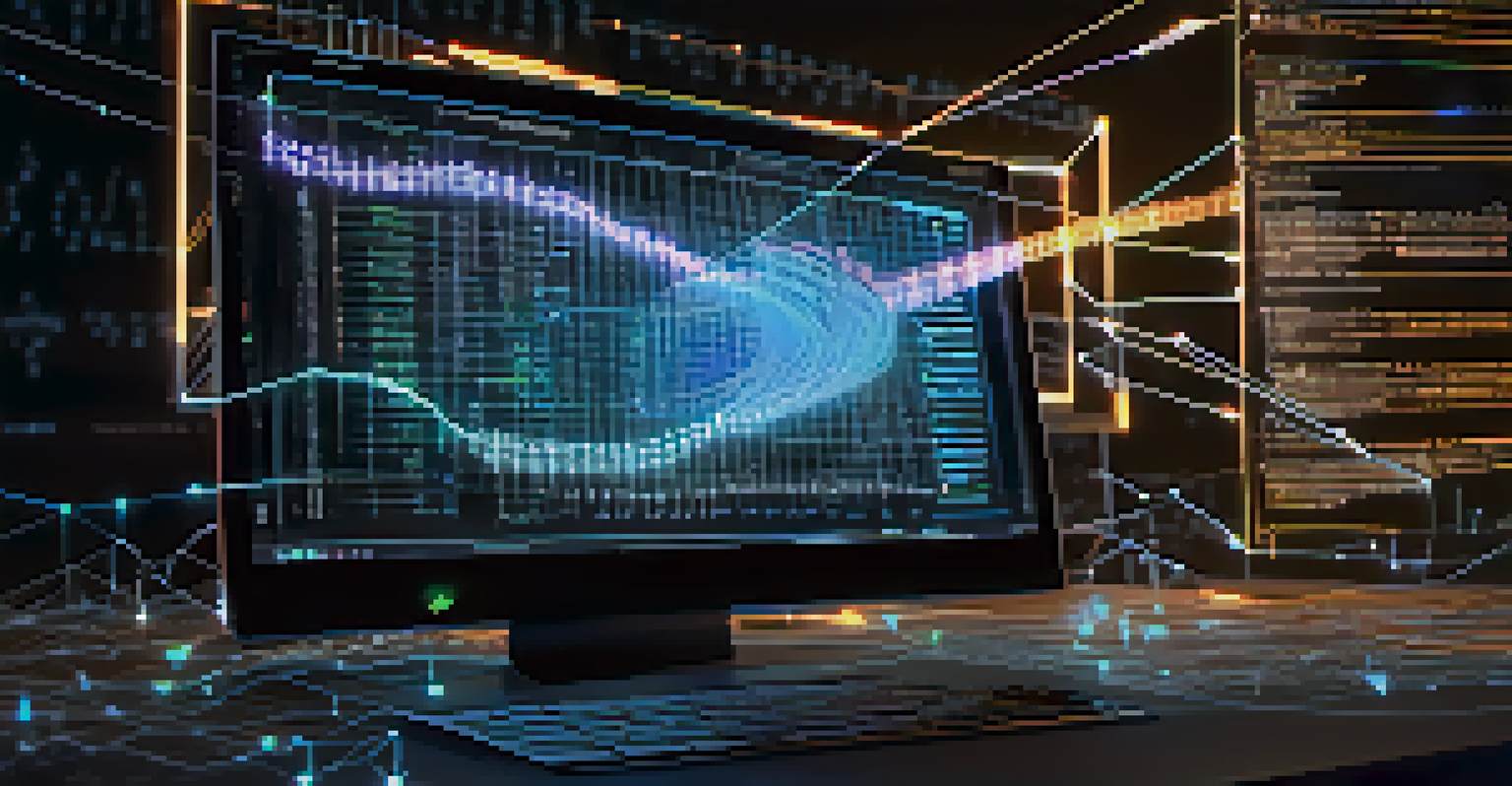The Role of Oracles in Decentralized Finance Ecosystems

What Are Oracles in the DeFi Landscape?
In the world of decentralized finance (DeFi), oracles serve as crucial bridges between blockchain networks and real-world data. Simply put, they provide the necessary information that smart contracts need to execute functions based on external conditions. Without oracles, many DeFi applications would struggle to operate effectively, as they rely on accurate, real-time data.
Data is the new oil, and oracles are the pipelines that bring it to the blockchain.
Oracles come in different forms, including centralized and decentralized options. Centralized oracles are operated by single entities, while decentralized oracles distribute data collection across multiple sources, enhancing reliability and security. This distinction is vital because it affects how trust is established within the DeFi ecosystem.
For example, imagine a weather-dependent insurance contract on a blockchain. An oracle would fetch weather data from trusted sources to determine if a payout is needed. This highlights how oracles transform abstract blockchain transactions into actionable real-world events.
The Importance of Accurate Data in DeFi
In DeFi, the accuracy of data provided by oracles can significantly impact financial outcomes. If an oracle delivers incorrect information, it can lead to substantial financial losses for users and disrupt the entire ecosystem. Therefore, ensuring the integrity of the data is paramount.

A great analogy is to think of oracles as the messengers in a game of telephone. If the message gets distorted along the way, the final outcome can be drastically different from the original intent. In the context of DeFi, this 'message' is the data that oracles provide, and any distortion can have serious repercussions.
Oracles as Data Bridges in DeFi
Oracles serve as essential connectors between blockchain networks and real-world data, enabling smart contracts to function effectively.
To mitigate risks, many projects use multiple oracles to cross-verify data before it’s used in smart contracts. This redundancy helps ensure that the information is accurate and trustworthy, allowing the DeFi ecosystem to operate smoothly and securely.
Types of Oracles Used in DeFi
Oracles can be categorized into several types, each serving different functions within the DeFi space. There are price oracles, which provide real-time pricing data for assets, and event oracles, which trigger actions based on specific occurrences. These various types cater to the diverse needs of DeFi applications.
In a world where everything is connected, data accuracy is the cornerstone of trust.
Another noteworthy type is the decentralized oracle, which enhances security by relying on multiple data sources. Projects like Chainlink have pioneered this approach, ensuring that the data fed into smart contracts comes from numerous trusted nodes. This decentralization reduces the risk of single points of failure and manipulation.
Imagine you're at a potluck dinner, and everyone brings a dish. If only one person brings food, the meal may lack variety and could be unappetizing. Similarly, decentralized oracles ensure a diverse array of data sources, enriching the information landscape for DeFi applications.
How Oracles Enhance Smart Contracts
Smart contracts are self-executing agreements with the terms directly written into code. However, they require external data to function effectively, which is where oracles come into play. By feeding accurate information into these contracts, oracles enable them to react to real-world conditions.
For instance, consider a loan agreement that adjusts interest rates based on market conditions. An oracle provides the necessary economic data, allowing the smart contract to modify the terms automatically. This level of automation enhances efficiency and transparency in financial transactions.
Data Accuracy Is Crucial
The integrity of data provided by oracles is vital, as inaccuracies can lead to significant financial losses and disrupt the DeFi ecosystem.
Think of it this way: oracles act like the sensors in a smart home. Without sensors, the home can't adjust the temperature or lighting based on external conditions. Similarly, without oracles, smart contracts lack the ability to respond dynamically to the world outside the blockchain.
Challenges Facing Oracles in DeFi
Despite their importance, oracles face several challenges in the DeFi ecosystem. One of the primary concerns is security; if an oracle is compromised, it could lead to malicious activities and exploitation of smart contracts. This underlines the need for robust security measures.
Moreover, the reliance on multiple data sources can lead to inconsistencies. If different oracles provide conflicting information, it can create confusion and undermine trust in the system. This challenge emphasizes the importance of establishing standards for data accuracy and reliability.
An example to illustrate this is the infamous 'Oracle Problem.' Think of it as a game where players have to report the weather, but each player sees something different. The discrepancies among players can lead to varying conclusions, much like how inconsistent data from oracles can affect DeFi operations.
The Future of Oracles in DeFi
The role of oracles in DeFi is set to expand as the ecosystem continues to grow. With advancements in technology, we can expect more sophisticated oracles that can provide a wider range of data types and improve security measures. This evolution will play a vital role in enhancing the functionality and adoption of DeFi applications.
One potential direction is the integration of artificial intelligence with oracles. By leveraging AI, oracles could analyze vast amounts of data more efficiently, delivering real-time insights that enhance decision-making for DeFi platforms. This could open up new avenues for innovation and efficiency.
Future Innovations in Oracles
As technology advances, oracles are expected to evolve, incorporating AI and improving their ability to provide timely and accurate data.
Consider the analogy of a car's GPS system, which constantly updates routes based on traffic conditions. As DeFi oracles evolve, they too will provide more accurate and timely data, enabling users to navigate the financial landscape more effectively and make informed decisions.
Conclusion: The Indispensable Role of Oracles
In conclusion, oracles are indispensable components of decentralized finance ecosystems. They provide the essential data that enables smart contracts to function and ensure that DeFi applications can respond to real-world conditions. As the DeFi landscape continues to evolve, the importance of reliable and accurate oracles will only increase.
By bridging the gap between blockchain technology and the outside world, oracles play a vital role in enhancing transparency, efficiency, and trust within the financial ecosystem. Their ability to provide timely and accurate information empowers users and fosters greater confidence in DeFi solutions.

Ultimately, as we look towards the future of finance, understanding the role of oracles will be critical for anyone looking to navigate the exciting world of decentralized finance. They are not just data providers; they are the backbone that supports the entire DeFi structure.